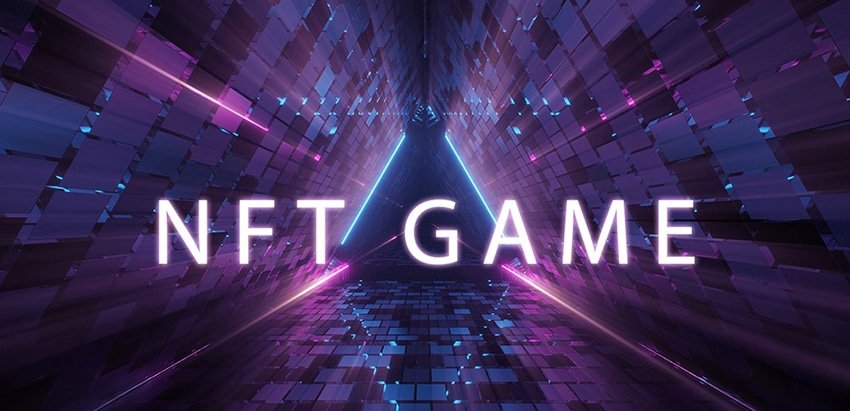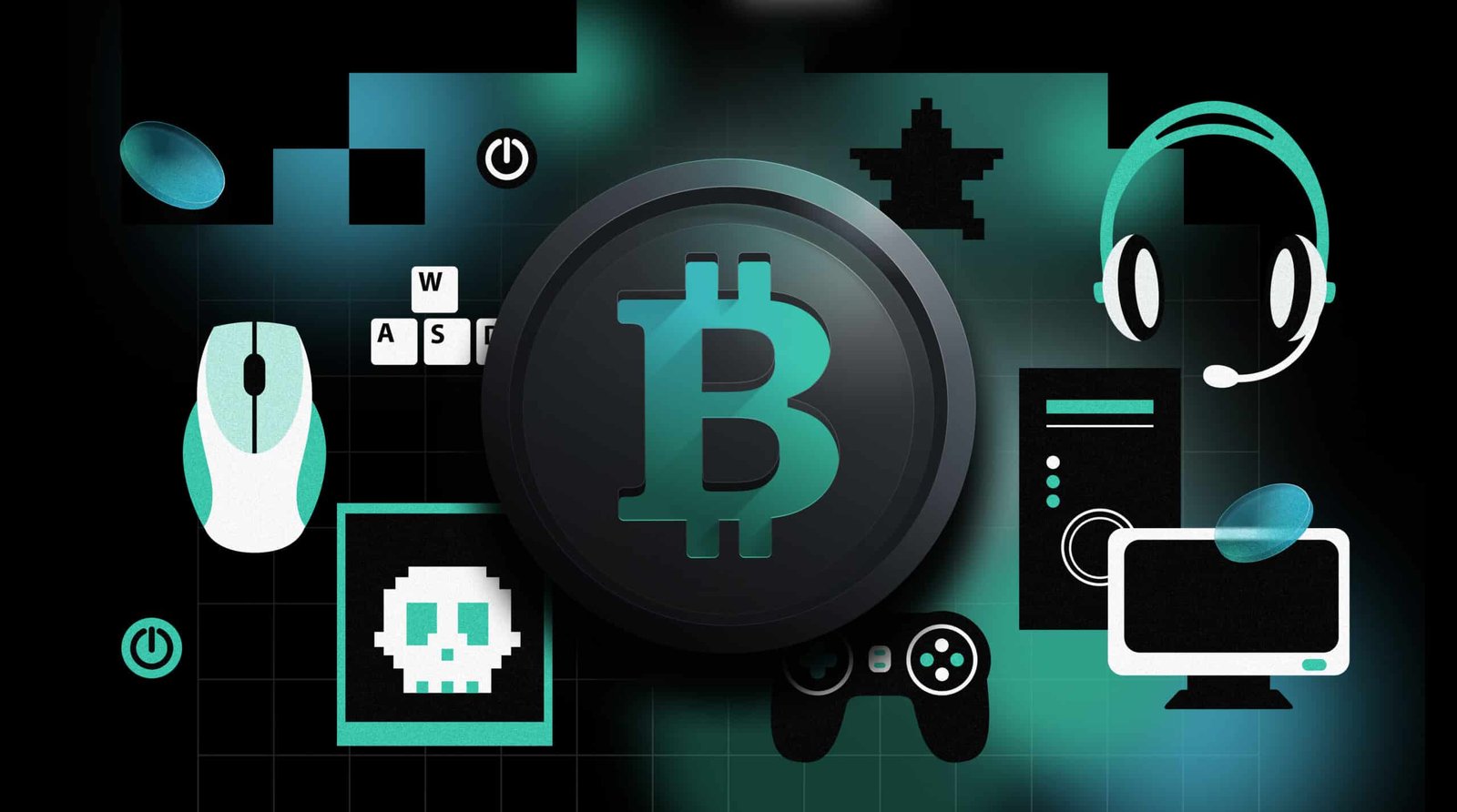Blockchain technology is no longer a concept reserved for cryptocurrency enthusiasts or financial markets; it has now firmly established itself in the realm of digital entertainment. One of the most exciting and disruptive areas of blockchain’s impact is blockchain gaming. By integrating blockchain technology with gaming platforms, this innovation is redefining the future of gaming, creating new opportunities for players, developers, and investors alike.
Blockchain gaming introduces the ability to own, trade, and sell in-game assets, allowing players to truly have ownership of virtual items, which were previously controlled by centralized gaming companies. This decentralization is transforming how games are created, how players interact with games, and how virtual economies operate. In this article, we’ll explore how blockchain gaming is revolutionizing the gaming industry, its key features, and its potential to change the future of digital entertainment.
Key Takeaways
- True Ownership: Blockchain gaming enables players to own in-game assets (NFTs), giving them control and verifiable proof of ownership.
- Play-to-Earn: Players can earn real-world rewards (cryptocurrency, NFTs) through gameplay, creating new income opportunities.
- Decentralized Ecosystems: Blockchain games operate without central authority, offering players more control and transparency.
- Interoperability: Assets can be transferred between different games within the same blockchain, enhancing their value and utility.
- New Gaming Economy: Blockchain gaming introduces a player-driven economy, allowing the buying, selling, and trading of assets in decentralized markets.
What is Blockchain Gaming?

Blockchain gaming refers to video games that utilize blockchain technology to create decentralized, transparent, and secure gaming ecosystems. Unlike traditional gaming systems where in-game assets are owned by the game developers or publishers, blockchain games enable players to own digital assets, such as in-game characters, skins, virtual land, and other collectibles, through non-fungible tokens (NFTs).
These assets are stored on a blockchain, which ensures they cannot be altered or duplicated, offering true digital ownership to the player. Blockchain also enables the creation of decentralized marketplaces where players can buy, sell, and trade these assets with ease. This approach not only empowers players but also opens up new revenue models for developers and creators.
Key Features of Blockchain Gaming
- True Ownership of In-Game AssetsOne of the most significant features of blockchain gaming is that it allows players to own in-game assets. Using blockchain, players can possess tangible proof of ownership over virtual items, characters, land, and more. This is facilitated through NFTs, which represent unique items that are verified on the blockchain.In traditional gaming, players purchase virtual items or cosmetics that are limited to the game they were bought in, and they do not own the items outright. In contrast, blockchain gaming offers true ownership, meaning players can sell, trade, or move their assets across different games or platforms.
- Play-to-Earn (P2E) ModelThe play-to-earn model is another transformative aspect of blockchain gaming. In this model, players can earn cryptocurrency or NFTs through gameplay, such as completing quests, fighting in battles, or participating in in-game events. These rewards can then be sold or traded for real-world money or used to improve in-game assets.This system introduces a new dynamic where players can monetize their gaming experience, making gaming more rewarding not just as a form of entertainment, but also as a way to earn income. For example, some players are earning substantial amounts by playing blockchain-based games like Axie Infinity, where players raise and battle creatures to earn tokens that have real-world value.
- Decentralized EcosystemsBlockchain gaming thrives on decentralization. Unlike traditional gaming systems, which rely on central servers controlled by game developers, blockchain games operate on decentralized networks, typically using blockchain technology such as Ethereum or Solana. This decentralization means that no single party has complete control over the game, allowing for more transparency and fairness.In decentralized ecosystems, players have more autonomy. They can actively participate in governance decisions through decentralized autonomous organizations (DAOs), vote on new features or content, and influence the development of the game. This shift gives players a greater stake in the games they love, creating a more engaged and loyal community.
- NFTs and Digital CollectiblesBlockchain technology enables the use of NFTs in gaming. NFTs are unique, blockchain-based tokens that represent ownership of a specific in-game item. This could be anything from a rare sword in a fantasy RPG to a collectible digital card or skin in a shooter game. These assets are unique and verifiable on the blockchain, meaning they cannot be replicated, offering rarity and value to digital goods.NFT gaming has already seen the creation of thriving markets for in-game items, allowing players to buy and sell these assets across various platforms. Some players have made significant profits by trading rare NFTs, which has further fueled interest in the space. Popular platforms like OpenSea allow players to trade their NFTs and discover new digital assets in the gaming world.
- Interoperability Between GamesAnother exciting feature of blockchain gaming is interoperability. Blockchain technology allows assets to be transferred between different games within the same blockchain ecosystem. For example, a player may purchase a rare sword in one game and then use it in another game that operates on the same blockchain.This cross-game functionality is a powerful feature that traditional gaming systems cannot provide. It allows players to maximize the utility of their in-game assets and fosters a more connected gaming environment. As the blockchain gaming space continues to grow, interoperability could become a major component of how games are developed and experienced.
How Blockchain Gaming is Changing the Future of Digital Entertainment

- Empowering Players with OwnershipThe ability to own digital assets changes the relationship between players and games. Players are no longer just consumers of content; they become participants in a broader economic system. In traditional gaming, players buy items, but they don’t own them. With blockchain, ownership of virtual assets is no longer a theoretical concept; it is a real, tangible thing. This can have profound implications for how players perceive and interact with games.In the future, players may see gaming not just as entertainment, but as an avenue for investing in and creating value. Virtual items, rare collectibles, and digital land can all appreciate in value, providing players with the opportunity to turn their in-game efforts into financial rewards.
- Creating a New Economy in GamingBlockchain gaming is giving rise to a new type of gaming economy. In traditional games, developers control the in-game economy, but blockchain introduces the possibility of creating player-driven economies. With players able to buy, sell, and trade virtual items, the value of these digital assets is determined by market demand, not by a central authority.Crypto-based gaming economies are helping to create new economic models in which players can earn cryptocurrency, create valuable digital assets, and engage in commerce within the game’s universe. This new economy is beginning to blur the lines between gaming, finance, and digital art, allowing the gaming industry to become a platform for innovation in virtual finance.
- Expanding the Reach of GamingBlockchain gaming has the potential to bring gaming to a much broader audience. By enabling true digital ownership and the possibility of earning real-world rewards, blockchain games are attracting not only traditional gamers but also people interested in cryptocurrency, NFTs, and digital collectibles.This expansion could significantly increase the reach of online gaming by attracting individuals who may not have previously been interested in gaming but are drawn to the economic aspects of crypto and digital assets. The intersection of gaming and cryptocurrency could lead to greater adoption of blockchain-based games, growing the user base and fostering innovation.
- Enhancing Game Design and DevelopmentBlockchain technology is also changing the way games are designed and developed. Developers can create games that involve play-to-earn mechanics, where players’ time and skills are rewarded with valuable digital assets. They can also incorporate smart contracts into their games to automate various aspects of gameplay or in-game economies.The ability to create decentralized game ecosystems means that developers can involve the community in decision-making processes. Players can vote on new content, game updates, or changes to the economy. This kind of community-driven development is unique to blockchain games and helps to ensure that players have a say in the direction of the game.
- Building the MetaverseAs blockchain gaming continues to grow, it plays an integral role in the development of the metaverse—a digital universe where players can interact with each other, explore virtual worlds, and participate in decentralized economies. Blockchain’s ability to provide true ownership of virtual assets, combined with the interoperability of in-game items, is essential for building the metaverse.The metaverse could become the next evolution of digital entertainment, where gaming, social interaction, work, and commerce all converge. With blockchain as the foundation, the metaverse has the potential to offer a new kind of interactive experience, where users can truly own and monetize their digital experiences.
Also Read: How Crypto Gaming Is Revolutionizing The Future Of Online Entertainment
Conclusion
Blockchain gaming is reshaping the future of digital entertainment by offering players true ownership of in-game assets, introducing new economic models, and fostering decentralized gaming ecosystems. The ability to own, trade, and earn real-world rewards through play-to-earn models is attracting a new wave of gamers and investors to the industry.
As blockchain technology continues to advance, the impact of blockchain gaming will likely expand, giving rise to innovative game designs, new economic systems, and a more inclusive and interactive gaming experience. The future of gaming is here, and it’s powered by blockchain.
FAQs
What is blockchain gaming?
Blockchain gaming refers to video games that use blockchain technology to provide players with true ownership of in-game assets, using NFTs and cryptocurrencies.
How does blockchain benefit gamers?
Blockchain allows players to truly own their in-game items, trade them across different games, and earn real-world rewards through play-to-earn models.
What are NFTs in gaming?
NFTs are unique digital assets stored on the blockchain. They represent ownership of in-game items, such as rare skins, characters, or virtual land.
Can players earn money from blockchain games?
Yes, players can earn cryptocurrency or valuable NFTs by participating in blockchain games, which can be sold or traded for real-world value.
How does blockchain make games more secure?
Blockchain provides transparency and security through its decentralized ledger, making it harder for hackers to alter or duplicate in-game assets.
What is interoperability in blockchain gaming?
Interoperability allows assets to be transferred between different games within the same blockchain ecosystem, enabling players to use their items across multiple platforms.
Is blockchain gaming the future of the gaming industry?
Many experts believe that blockchain gaming represents the future, as it provides a new way for players to engage with games, own digital assets, and participate in decentralized economies.



